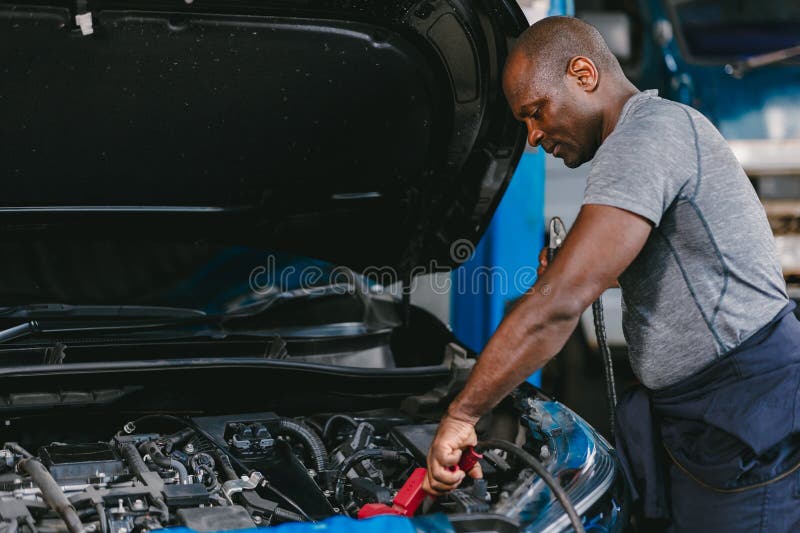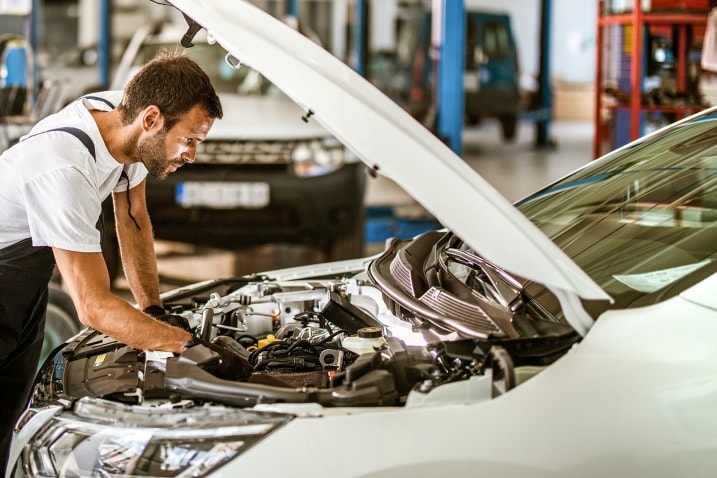Featured
When your vehicle starts to get too hot, it can be a difficult and frightening situation. Nonetheless, recognizing just how to respond in these moments and taking actions to prevent future getting too hot can help secure your car and prevent pricey repairs. Below's what to do if your automobile overheats and exactly how to avoid it from occurring again.
If Your Auto Overheats,What to Do. Pull Over and Shut Off the Engine The very first thing you must do if your auto starts to get too hot is to draw over to a risk-free area, such as a vehicle parking great deal or the shoulder of the roadway. Switch off the engine quickly to stop additional damage. Running an overheated engine can cause irreparable damages to the inner components, including the radiator and cylinder heads.
Enable the Engine to Cool Down After transforming off the engine, provide it time to cool off. Opening up the hood can help release heat, yet beware as the engine and bordering locations may still be exceptionally warm. Wait at the very least 15-20 minutes prior to attempting any further activities.
Inspect the Coolant Degree Once the engine has actually cooled, examine the coolant degree. Never open the radiator cap while the engine is hot, as this could create hot coolant to spray and burn you.
Evaluate for Leaks or Damaged Tubes While you are evaluating the coolant level, check for any noticeable leakages or harmed tubes under the hood. Cracked or damaged pipes can trigger coolant to leakage out, bring about an overheating engine. If you spot any type of concerns, you may need to ask for roadside help or a tow to get the cars and truck to a mechanic.
Call for Help If you can not recognize the root cause of the overheating or the issue persists after complementing the coolant, it's best to call for roadside support. Driving with an overheated engine can create severe damage to your vehicle and leave you stranded.
![]()
Exactly How to stop Your Cars And Truck from Getting too hot. Examine Coolant Levels Regularly One of the main reasons of getting too hot is low coolant degrees. Make it a practice to examine your coolant levels consistently and cover them off if needed. Describe your lorry's manual for the advised coolant blend and upkeep periods.
Inspect Your Radiator Your radiator plays an essential role in keeping the engine cool. Ensure there are no clogs or particles blocking air flow with the radiator. If your radiator is clogged or harmed, it might not operate appropriately, resulting in getting too hot.
Maintain Your Air conditioning System The cooling down system ought to be purged and refilled occasionally. Gradually, coolant can end up being contaminated or lose its effectiveness. Follow the producer's recommendations for purging the system, generally every 30,000 to 50,000 miles.
Monitor the Thermostat and Water Pump The thermostat controls the temperature level of the engine, while the water pump circulates coolant through the engine. It can trigger the engine to overheat if either of these elements fails. Have your technician check the thermostat and water pump throughout regular upkeep.
Prevent Overloading the Automobile Overloading your vehicle, specifically on hot days or long journeys, can stress the engine and the cooling system. Bear in mind your vehicle's weight limits and attempt to stay clear of lugging hefty tons, particularly when driving in severe temperature levels.
Drive with Treatment Aggressive driving, such as speeding or fast velocity, can enhance engine stress and heat production. Slow down, especially on hot days or when driving up high slopes, to lower the risk of overheating.
![]()
Final thought. Knowing what to do if your automobile overheats can protect against additional damage to your engine and help you handle the situation securely. By consistently examining your coolant levels, examining the radiator and hose pipes, and maintaining the cooling system, you can lower the threat of getting too hot. With aggressive treatment and appropriate upkeep, your lorry will certainly remain in good condition, guaranteeing you remain risk-free and avoid expensive repair work down the road.
If Your Auto Overheats,What to Do. Pull Over and Shut Off the Engine The very first thing you must do if your auto starts to get too hot is to draw over to a risk-free area, such as a vehicle parking great deal or the shoulder of the roadway. Switch off the engine quickly to stop additional damage. Running an overheated engine can cause irreparable damages to the inner components, including the radiator and cylinder heads.
Enable the Engine to Cool Down After transforming off the engine, provide it time to cool off. Opening up the hood can help release heat, yet beware as the engine and bordering locations may still be exceptionally warm. Wait at the very least 15-20 minutes prior to attempting any further activities.
Inspect the Coolant Degree Once the engine has actually cooled, examine the coolant degree. Never open the radiator cap while the engine is hot, as this could create hot coolant to spray and burn you.
Evaluate for Leaks or Damaged Tubes While you are evaluating the coolant level, check for any noticeable leakages or harmed tubes under the hood. Cracked or damaged pipes can trigger coolant to leakage out, bring about an overheating engine. If you spot any type of concerns, you may need to ask for roadside help or a tow to get the cars and truck to a mechanic.
Call for Help If you can not recognize the root cause of the overheating or the issue persists after complementing the coolant, it's best to call for roadside support. Driving with an overheated engine can create severe damage to your vehicle and leave you stranded.

Exactly How to stop Your Cars And Truck from Getting too hot. Examine Coolant Levels Regularly One of the main reasons of getting too hot is low coolant degrees. Make it a practice to examine your coolant levels consistently and cover them off if needed. Describe your lorry's manual for the advised coolant blend and upkeep periods.
Inspect Your Radiator Your radiator plays an essential role in keeping the engine cool. Ensure there are no clogs or particles blocking air flow with the radiator. If your radiator is clogged or harmed, it might not operate appropriately, resulting in getting too hot.
Maintain Your Air conditioning System The cooling down system ought to be purged and refilled occasionally. Gradually, coolant can end up being contaminated or lose its effectiveness. Follow the producer's recommendations for purging the system, generally every 30,000 to 50,000 miles.
Monitor the Thermostat and Water Pump The thermostat controls the temperature level of the engine, while the water pump circulates coolant through the engine. It can trigger the engine to overheat if either of these elements fails. Have your technician check the thermostat and water pump throughout regular upkeep.
Prevent Overloading the Automobile Overloading your vehicle, specifically on hot days or long journeys, can stress the engine and the cooling system. Bear in mind your vehicle's weight limits and attempt to stay clear of lugging hefty tons, particularly when driving in severe temperature levels.
Drive with Treatment Aggressive driving, such as speeding or fast velocity, can enhance engine stress and heat production. Slow down, especially on hot days or when driving up high slopes, to lower the risk of overheating.

Final thought. Knowing what to do if your automobile overheats can protect against additional damage to your engine and help you handle the situation securely. By consistently examining your coolant levels, examining the radiator and hose pipes, and maintaining the cooling system, you can lower the threat of getting too hot. With aggressive treatment and appropriate upkeep, your lorry will certainly remain in good condition, guaranteeing you remain risk-free and avoid expensive repair work down the road.
Latest Posts
How to Integrate Smart Technology into Custom Gates and Fences
Published Jan 08, 25
1 min read
Commercial Energy-Efficient Roofing: Save on Costs and Help the Environment
Published Jan 07, 25
1 min read
Exactly How Can I Price Quote the Expense of Brake Repairs or Replacements?
Published Jan 07, 25
0 min read
More
Latest Posts
How to Integrate Smart Technology into Custom Gates and Fences
Published Jan 08, 25
1 min read
Commercial Energy-Efficient Roofing: Save on Costs and Help the Environment
Published Jan 07, 25
1 min read
Exactly How Can I Price Quote the Expense of Brake Repairs or Replacements?
Published Jan 07, 25
0 min read